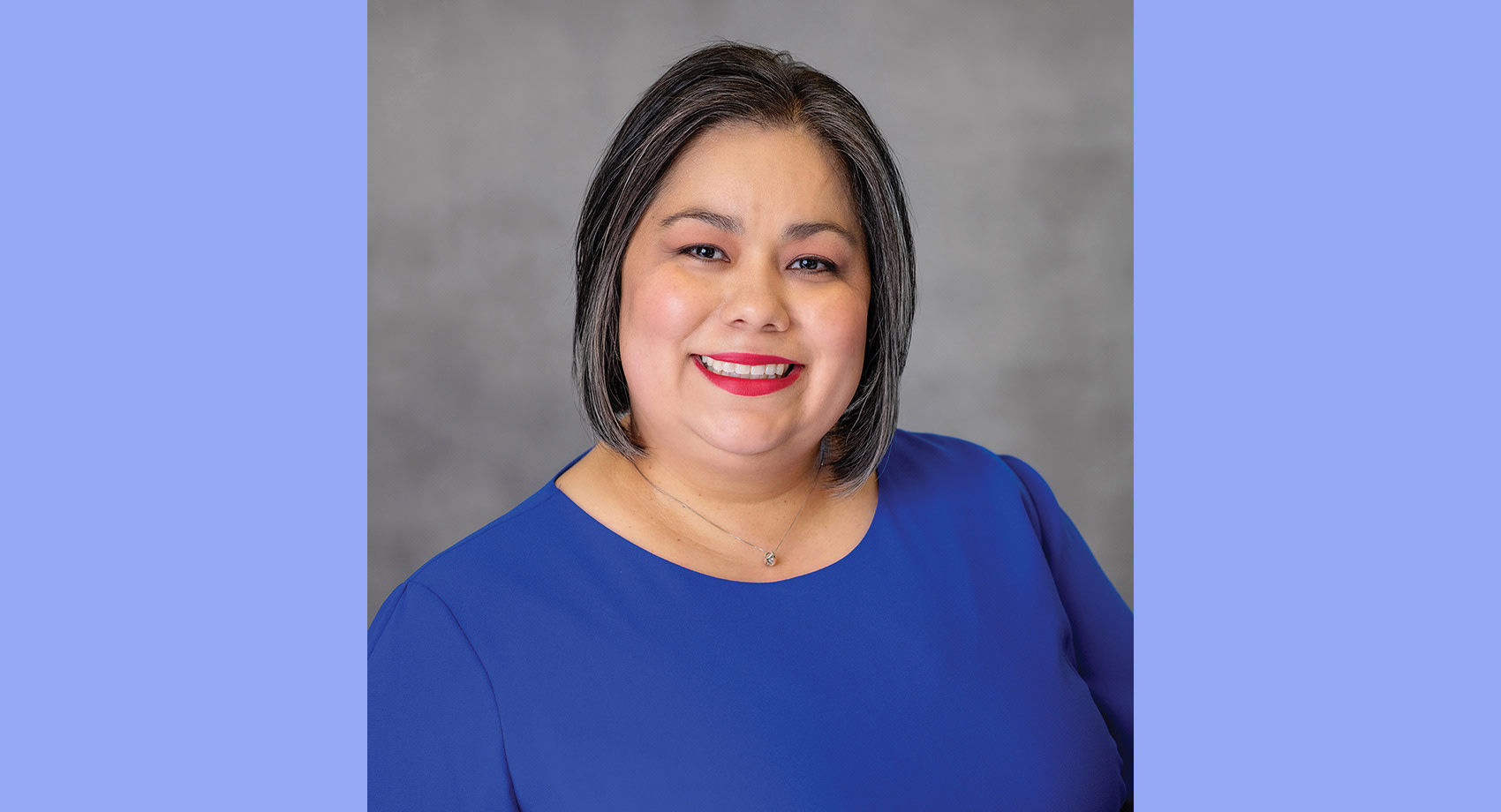 Student Engagement
Student EngagementMay 2022 EL Voices / Alma Lopez
4 years ago
If we're not introducing students to college and career options by middle school, we're doing them a disservice, says Alma Lopez. The lead school counselor at Livingston Middle School in Merced County, California, Lopez has been named the 2022 National School Counselor of the Year by the American School Counselor Association. She is the first Latina school counselor of the year and one of only a handful of rural counselors to earn the title. As a first-generation college student and daughter of Mexican immigrants, Lopez hopes to inspire her students—many of whom come from a similar background—to think big early on.
You often talk about your experience as a student—and the lack of exposure you had to college. What do you wish your high school counselor had done differently?
I never met my high school counselor. I knew her name—she would be at rallies, and she would promote activities. But I was in the academic middle, and her focus was the high-achieving kids who needed scholarships to get to college and the low-achieving kids who needed credit to graduate. Those of us in the middle never really knew too much about college. We never felt like it was within our reach.
I really wish that she would've had the time to connect with me and offer me information and resources. Here at my middle school, we have the AVID program, which intentionally reaches out to first-generation, low-socioeconomic kids that qualify for extra support. It's an amazing program! We take the kids on college tours, bring in college tutors who show them how to study, and host events like Fun Fridays where they get to ask college kids questions. We also have an active California Junior Scholastic Federation chapter.
Why is middle school such a key time to talk about college and career options?
It's such an important time because adolescence is about curiosity, inquiry, and exploration. We're even doing some work with our elementary students. Young kids will start off saying, I want to be a teacher or a first responder or a doctor. But as they develop, I want them to know that sure, you could be a teacher, but you could be a preschool teacher, which requires a community college education, you could be a middle school teacher, which requires multiple subject credentialing, you could be a college professor, where you need your master's degree. Every job is like that. By the time they leave middle school, I want students to understand that they have all these opportunities and pathways.
They can start to rule in and out some of their interests, especially when participating in elective and enrichment opportunities. That's what middle school is about: Exploring interests and then developing habits to be successful in the future. As middle school educators, we're in this unique position to help our students understand that if you work hard and you really want something, you can achieve it—you just have to know what the next step is.
What are one or two practices middle schools can put in place to spark students' interest in college?
The key thing is college awareness. When I was in high school, I saw a kid wearing a T-shirt that said Fresno State, and I was like, "What is that?" He responded, "Oh, my brother goes there." And I thought, I should look into that. California State University-Fresno turned out to be the only college I applied to. I was accepted, but it shouldn't have been by chance; it shouldn't have been because I saw a T-shirt.
But because that T-shirt sparked an interest for me, I wondered if it could do the same for my students. So, now, every Wednesday at our school is college awareness day. Our teachers wear their college T-shirts and post their degrees and any special certificates they have in their classrooms. Students also wear college gear. But the initial turnout was underwhelming.
Then, one day I was sitting in a school counseling advisory and I had a parent tell me, "Alma, I didn't go to college. How am I supposed to get my kid a shirt?" It was in that moment, I was like, duh. I went to my principal at the time for funds and I've since gone to my superintendent. This last year, we got $7,000 from the district to buy college T-shirts, and we give them away as incentives during College and Career Week and throughout the year.
In some places, counselors are doing lunch duty, or counselors are doing testing, or counselors are doing anything but their job.
Alma Lopez
When you identify with the brand of something—think of the Apple logo—it does something to your psyche. You want to be a part of it, you want to belong. Now, kids are seeing all these different T-shirts and logos and names. There's a lot of power in that.
Visiting colleges is also part of the awareness-building. I'm so impressed with how college tours have changed students' mindsets. We'll take a busload of kids to a school, and on the way there, they'll ask, "When are we gonna get there? Can we eat at McDonald's? Where's Starbucks?" But on the way back, the kids are suddenly like, "I wonder if I could be an engineer if I go there." "I wonder if they have a law program." "I really like that school; I could see myself there." In one day, their thinking shifts big time.
How can school leaders better support counselors right now, especially in their efforts to prepare students for postsecondary success?
First, if you don't have a school counselor, hire one. We're trained to support students academically, socially and emotionally, and for college and career readiness. In California, having a school counselor is not a requirement at any level. It's insane. So, that's the first step.
And then, once you have a school counselor, allow them to facilitate a comprehensive school counseling program. In some places, counselors are doing lunch duty, or counselors are doing testing, or counselors are doing anything but their job. It's understandable; there is a need for those additional supports. However, we're master's-level educators who get a good salary to do this job and we want to do it. But if we're not allowed to our job because the principal needs us to cover a class, that presents a challenge. Our students don't get the services they need—the services that the school counselor is supposed to be providing.
These are our future doctors, mechanics, delivery drivers. I want these young people to be solid.
Alma Lopez
Another way leaders can help is by supporting and funding those programs that I mentioned. AVID, for example, requires teachers to have some professional development to be able to facilitate support classes. It also requires time for teachers to interview and select the college tutors that come into the classroom.
When I first started here, my colleague and I would sell snow cones for $1 so we could pay for a charter bus to take kids on college tours. But now, our superintendent is pretty much like, "What do you need?" If we value higher education, if we believe we want it to be an option for our students, we have to put the money there.
In this particularly challenging time, how can educators give students hope about their futures?
I once heard Jeff Duncan-Andrade, an associate professor at San Francisco State University, speak at a conference about hope, and he referenced Tupac Shakur's poem "The Rose That Grew From Concrete." Tupac was killed years ago, but young people still gravitate to his message. The poem really is about recognizing that no matter how tough things are—the concrete—no matter all the challenges, the rose can still bloom. It can bloom and come to life if it has water and rain, if something gets in there to nourish it. And that's us, the educators. Right now, we have an incredible opportunity to really matter.
I could show you five notes right now of parents who've called me because someone's died in their family. That's a very real thing that's happening. I'm getting messages saying, "We're losing our home because we're getting evicted." "We don't have food; what's the meal situation at the school?" I have all these calls that come in—so that concrete is hard—it's tough. But all of us, the kids and the adults in the building, we're still growing and developing and going through this together. So, we have an opportunity—and I think an obligation—to do more than just literally survive this. We need to thrive.
If we need a moment, we should take it. Rest and recharge, but then roll your sleeves up and do the work because our kids are depending on it. And we're depending on it. If we stop and think about it, these are our future doctors, mechanics, delivery drivers. I want these young people to be solid. I want them to be productive and respectful and contribute. And so there's also this vested interest as a human being to ensure that the kids are OK.
Editor's note: This interview has been edited for space.






